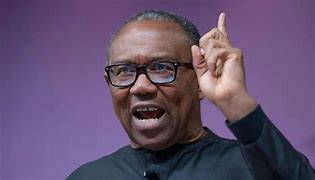Segun Sowunmi, a prominent member of the People’s Democratic Party (PDP), has advocated for the party to initiate discussions regarding the potential return of Peter Obi, the Labour Party’s presidential candidate in the 2023 elections. Sowunmi believes that reintegrating Obi into the PDP fold is a crucial step for the party’s future, given Obi’s significant performance in the elections and the organic nature of the support he garnered. He emphasized the need for a deep, introspective analysis within the PDP to understand the factors that led to Obi’s departure and to formulate a strategy for his return. This, according to Sowunmi, should be the party’s top priority moving forward.
Sowunmi’s call for Obi’s return reflects a growing recognition within the PDP of the political capital Obi represents. His performance in the 2023 elections, where he secured 6.2 million votes despite being a relatively new entrant into the presidential race, highlighted his appeal across different demographics. The “organic” nature of Obi’s support base, as described by Sowunmi, underscores the grassroots mobilization and genuine enthusiasm that propelled his campaign. Bringing Obi back into the fold, therefore, could significantly bolster the PDP’s prospects in future elections and potentially bridge the divide within the party.
The internal crisis within the PDP, marked by defections to the All Progressives Congress (APC), further underscores the urgency of addressing the underlying issues that led to Obi’s exit in the first place. Sowunmi attributes some of these issues to external pressures but also acknowledges the PDP’s own shortcomings in handling internal affairs. He criticizes what he sees as a lack of creativity and strategic thinking within the party, which has allowed these internal conflicts to fester and ultimately weaken the PDP’s position in the political landscape. The defections to the APC are seen as a symptom of deeper issues within the PDP that need urgent attention.
Sowunmi’s analysis also delves into the political acumen of President Bola Tinubu, cautioning against underestimating his abilities. He points out Tinubu’s intellectual prowess and strategic mind, warning that despite any perceived frailties, Tinubu is a formidable political force. This assessment emphasizes the need for the PDP to develop robust strategies and avoid complacency in its approach to competing with the ruling party. Sowunmi criticizes the PDP for seemingly underestimating Tinubu’s political capabilities and for not taking the necessary steps to mount a strong opposition.
The call for Obi’s return is not simply about bringing back a prominent figure but also about recognizing the changing political dynamics and adapting to them. Obi’s appeal to a segment of the electorate that the PDP has seemingly lost touch with highlights the need for the party to re-evaluate its strategies and reconnect with the grassroots. Reintegrating Obi, with his evident connection to a significant voter base, could be a significant step in this direction. It signifies a potential shift in the PDP’s approach, acknowledging the need for a broader coalition and a more inclusive platform.
In essence, Sowunmi’s argument rests on the premise that the PDP needs to embrace change and adapt to the evolving political landscape. Bringing Peter Obi back into the fold is presented not as a mere tactical maneuver but as a strategic necessity. It represents an opportunity to revitalize the party, broaden its appeal, and address the internal divisions that have plagued it in recent times. It is a call for introspection, for acknowledging past mistakes, and for charting a new course forward. The ultimate goal, according to Sowunmi, is not just to regain power but to rebuild the PDP into a stronger, more united, and more effective political force.














